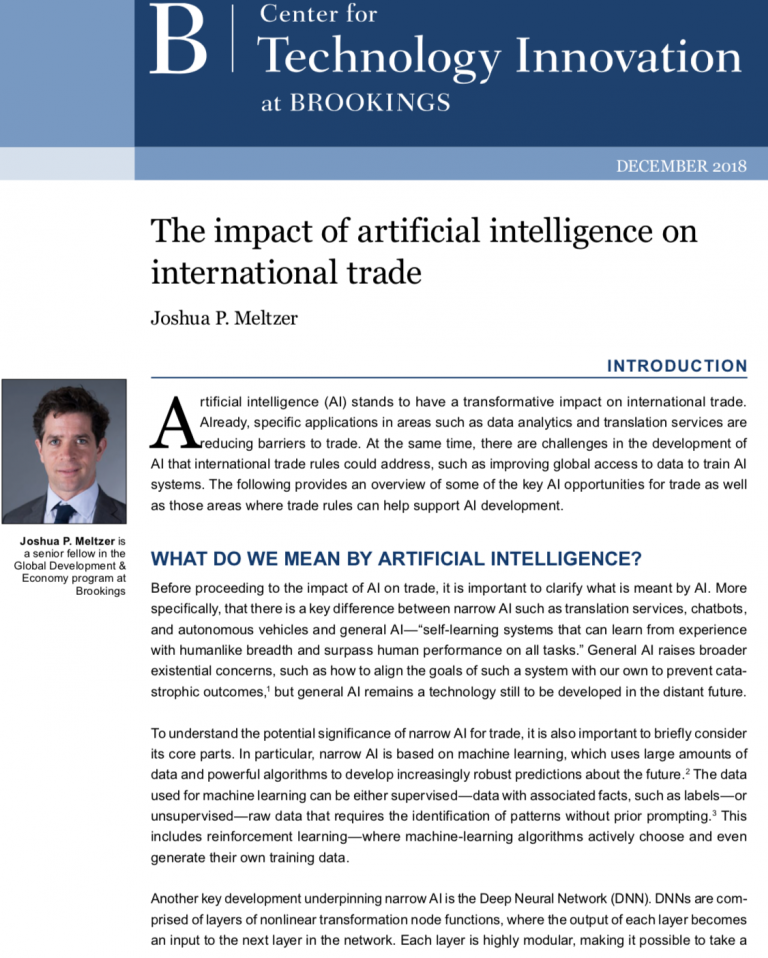Published 23 January 2019 | 1 minute read
Brookings Institution’s “The impact of artificial intelligence on international trade” looks at the relationship between AI and international trade. It provides an overview of key AI opportunities for trade as well as those areas where trade rules can help support AI development. Support for this report was provided by the Hinrich Foundation.
According to the report, the development of AI will affect international trade in a number of ways. One is the macroeconomic impacts of AI and the related trade effects. AI will also affect the type and quality of economic growth, with international trade implications. This is a corollary to concerns about the impact of AI and jobs, as AI is likely to expand automation and speed up job losses for low-skill, blue-collar workers in manufacturing fields.
In parallel, AI will also emphasize particular worker skills as it is used to add value to production and products. This should lead to further expansion of the share of services in production as well as international trade.
© The Hinrich Foundation. See our website Terms and conditions for our copyright and reprint policy. All statements of fact and the views, conclusions and recommendations expressed in this publication are the sole responsibility of the author(s).



